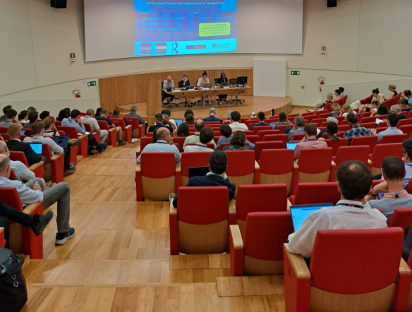
 Opinion: The European Parliament, Factory of compromises
Opinion: The European Parliament, Factory of compromises
A few days before the European elections, Albrecht Sonntag, Professor of European Studies at Essca School of Management in Angers, reminds us how this parliament works differently from the French one.
The European Parliament is a peculiar institution. Every five years, national contingents of deputies are elected, who then do not sit at all with their compatriots, but are divided up – and vote! – with their respective parties. The latter are diverse and varied, due to the proportional representation system in place. Their ranks in the Chamber are surrounded by booths of translators-interpreters, essential to an assembly with 24 official languages.
The official seat of the Parliament is the city of Strasbourg, but most of the work of the deputies is done in Brussels – making it the only parliament in the world to pack up every month for a short week in a second “capital” (with all the costs that this entails).
The election certainly produces a majority – quite stable, and traditionally located in the centre-right – but this majority does not form a government, since the European Commission is not a government and the Heads of Government of the Member States (the European Council) reserve the right to appoint its President.
An indispensable institution
It is clear that the European Parliament may not be a “normal” Parliament, but it is an indispensable institution. It is the parliament, which represents the citizens, and it is salutary that it has succeeded, during the four decades of his existence, in gaining more and more influence. With each new treaty, the areas in which it has a say have been systematically expanded.
Today, the “co-decision” process between Parliament and the Council has become the norm. Moreover, the Parliament controls the Commission. It gives tough oral examinations to Commissioners approached by Member States, and it can even force the entire Commission to resign (as happened in 1999).
The European Parliament is the Community spirit at work. Between defending the interests of their national constituencies and considering the common interest of Europeans, motivated by the promotion of their ideological convictions and the expertise acquired in parliamentary committees or delegations, the vast majority of MEPs have become masters at forging compromises. Sometimes shaky, often disparaged, but much less subject to the “lobbies” that some would like us to believe.
Of course, there are also those for whom the supranational Europe embodied by Parliament is a heresy, and the number of Members whose priority objective is to abolish the European Union and return to a Europe of nations has grown steadily over the last fifteen years or so. This trend is the result of growing dissatisfaction with the functioning and policies of a Union perceived – rightly or wrongly – as being too far away from the daily lives of its citizens. But it is also the result of a lack of mobilization of voters who wish to pursue European integration.
The European Parliament is the best response to the European Union’s alleged “democratic deficit”, so often denounced. Like any representative assembly, it needs to be legitimized by the vote. Such poor participation as in 2014 – 44% in France, 42% in the average of the Member States – can only reinforce extreme positions, such as those that led to Brexit. However, in the complexity of the European institutional framework, Parliament is the voice of the citizens. It is up to us to take it.
Translated with www.DeepL.com/Translator
Find the original article here: https://www.ouest-france.fr/reflexion/point-de-vue/le-parlement-europeen-fabrique-du-compromis-6349488
[cite]







